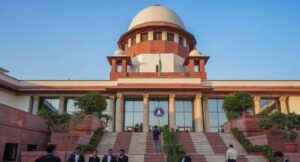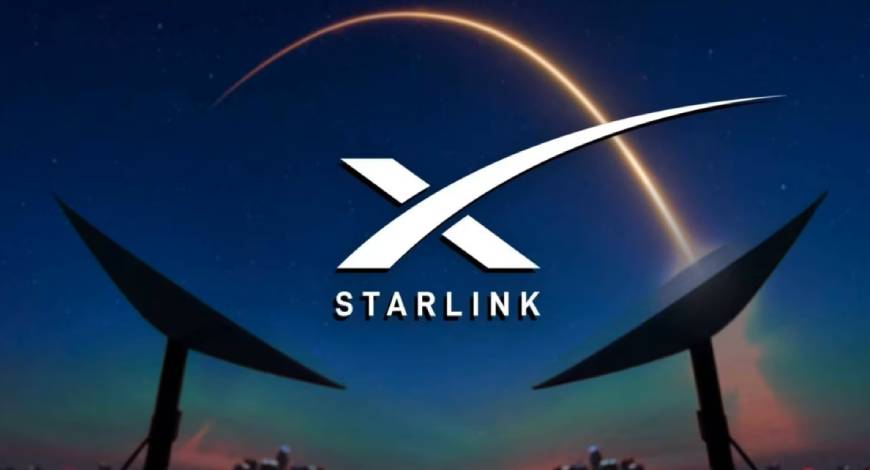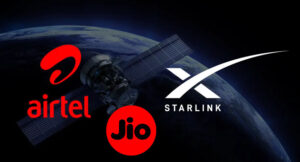Indian skies may open up to satellite internet as early as June, with the telecom regulator preparing the ground for the service that promises to reach distant corners and the open seas.
The Telecom Regulatory Authority of India (TRAI) is giving finishing touches to a set of recommendations on the pricing and use of satellite communications that has been in the making for nearly two years now, three people aware of the development said.
Once a framework is introduced and spectrum allocated, it will set the stage for the debut of satellite internet services by Mukesh Ambani’s Reliance Jio Infocomm, Sunil Bharti Mittal’s Bharti Airtel and Elon Musk’s Starlink.
“The recommendations are very close to being finalized, and the final methodology is mostly here,” one of the three people cited above said on the condition of anonymity, adding that the regulator is taking its time because the recommendations will include details on the revenue sharing model of satcom services, how spectrum will be allocated and priced, and other necessary regulations.
“Once the pricing and operations framework is out, Trai wants to quickly pass it through the Department of Telecommunications (DoT) and have it approved without much conflict,” the official cited above said.
The second official said that Trai may submit its recommendations in March itself and, after a brief consultation period, they are set to be adopted without much change by the Digital Communications Commission.
“This will set the auction process in order, which should take two to three months at best including final trials by operators. By June, operators in satellite services should start generating revenue as well,” the person added.
Queries sent to Trai and DoT, as well as Bharti Airtel and Reliance Jio remained unanswered.
The background
Satcom involves using satellites that connect to a receiver on the ground, which can beam data to devices like mobile phones or laptops. India’s space sector was liberalized to provide access to satellite spectrum and infrastructure between 2020 and 2022.
The promise of these services urged Reliance Jio to sign a joint venture with Luxembourg-based satellite operator SES in February 2022.
A month earlier, Bharti Airtel, with its joint venture partner Hughes Communications India, signed a distribution deal with UK’s OneWeb. In September 2023, France’s Eutelsat acquired OneWeb. Following the completion of the deal, Airtel remained the largest shareholder of the newly formed entity, by virtue of it owning 100% of OneWeb’s India division.
Musk’s satellite internet services firm, Starlink, is the third key competitor in this space. While the service had, for a short while, started accepting security deposits from customers in anticipation of a launch, the Centre’s strictures saw its preorders being suspended. As of now, Starlink has not received its Global Mobile Personal Communication by Satellite (GMPCS) licence, each of the three officials cited above confirmed.
“Starlink is keen on India, but it’s likely that they may not be present when the first operators commence services,” the third person cited above said. “That shouldn’t be a problem, though—satellite services are here for the long run, especially with Musk’s focus on Starlink as a consumer-facing service.”
Jio, however, has not been too comfortable with the looming threat of Starlink. The company has written to the Centre several times to make a case for auctioning satellite spectrum. The Centre, following global precedent, said in the Telecommunications Act, 2023 that satellite spectrum will be given to operators through an administrative allocation process, which is preferred by Starlink.
Question of when, not if
Now, though, the services seem imminent. On Monday, speaking at a press conference at Mobile World Congress in Barcelona, Union telecommunications minister Jyotiraditya Scindia said that each satcom operator “will be treated equally”, and no one will be offered preferential treatment over another.
On 20 February, speaking at an event hosted by brokerage firm Kotak Institutional Equities, Akhil Gupta, vice-chairman of Bharti Enterprises, had said that Airtel-OneWeb’s satellite internet services “will be launched soon commercially”, and that “the gateways in Gujarat and Tamil Nadu are already beaming, with spectrum already given on a test basis”.
Industry stakeholders and analysts expect the satcom services rollout to happen imminently, too, but emphasize on pricing as a key factor. T.V. Ramachandran, president of Broadband India Forum, said while administrative allocation is assured by the Telecommunications Act, and this should see the Trai framework being rolled out very soon, the pricing needs to be kept nominal to ensure access to maximum number of users who otherwise remain unconnected.
“Satcom operators are uniquely different from terrestrial operators, since the spectrum here is fully shared—and the modus operandi should be to connect the unconnected areas,” said Ramachandran. “The pricing of spectrum must, therefore, be done accordingly to ensure that most people get the benefits of the satellite internet services.”
A senior executive close to developments at the Airtel-OneWeb consortium further added, “Bharti Airtel has been ready with its services—to the extent that it can go live with its operations within a very, very short span of time. Regulatory uncertainty has only been stalling the sector, while our satellite constellation and network are both live for enterprise consumption,” the executive said.
Like Airtel, Jio, in October 2023, had announced the launch of Jio ‘Space Fiber’ satellite internet services for consumers. Both remain in functional pilot stages right now, awaiting policy clearance from the Trai, and subsequently, the DoT. LiveMint









